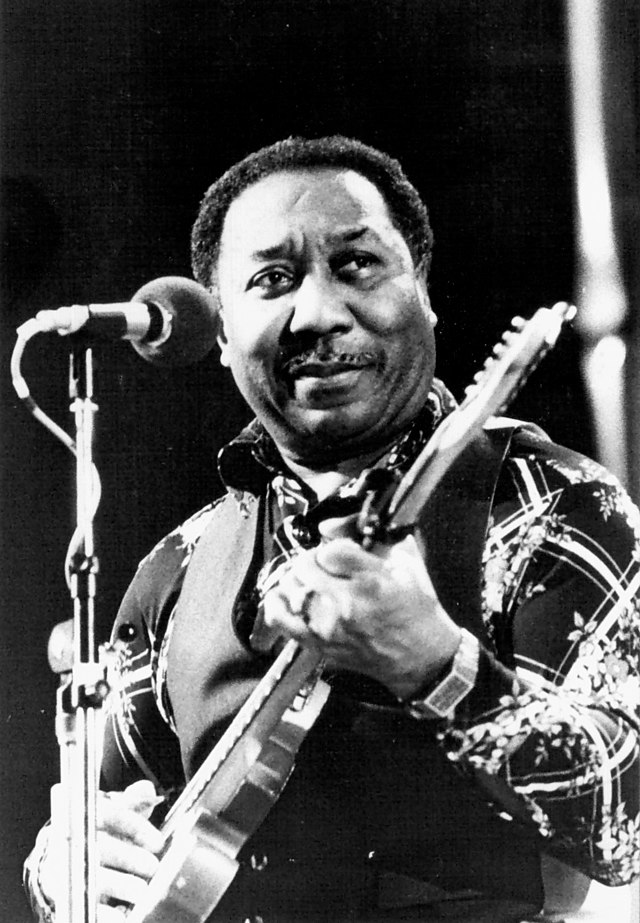
Styles: Bar Band Blues (aka Chicago/Electric Blues) 2
One doesn't often hear about a harmonica player who also sings. Also, in blues music, a main influence on rhythm and blues music, the harmonica player is often a featured instrument. This performance is significant to Chicago/electric blues because it highlights the harmonica as well as the vocalist. Here is Sonny Boy Williamson II doing just that in the song "Bye Bye Bird" (1963 performance).

Sonny Boy Williamson- "Bye Bye Bird" 1963 (Reelin' In The Years Archives) [ 00:00-00:00 ]
Significant roles were played in the Chicago/electric blues style by the harmonica, commonly referred to as "the Mississippi saxophone," and the slide guitar, both instruments heavily electrified, often distorted, and capable of generating heightened emotional content. Little Walter, initially as part of Muddy Waters's band and then on his own as a solo artist, was the leading bar band blues harp player, followed closely by Junior Wells, and then by James Cotton in the late 1950s as seen in "(Got My) Mojo Workin'" by Muddy Waters. While Muddy Waters played slide guitar, the high-wire pyrotechnics of slide wizards such as Elmore James in his recording "Dust My Broom" ,(1937) J.B. Hutto, and later Hound Dog Taylor epitomized this style of playing.
All three musicians mentioned, Waters, Williamson, and Walker recorded for Chess Records, which was arguably the most important post-war blues label and specialized in Chicago/electric blues. Started in 1947 as Aristocrat Records by bar owners Phil and Leonard Chess, part of Chess Records' success was due to the role of bass player Willie Dixon as a de facto A&R man, songwriter, and producer.
With his keen sense of what appealed to the public, Willie Dixon adapted various pre-war blues songs such as "Spoonful" and "You Need Love" (sung here by Muddy Waters). He also wrote numerous original blues for Chess artists, including "Wang Dang Doodle"sung here by Ko Ko Taylor, "I Ain't Superstitious" sung by Howlin' Wolf, and "Hoochie Coochie Man" sung by Muddy Waters. Many of Dixon's songs have become standards covered by British groups such as The Rolling Stones, The Yardbirds, and later Cream and Led Zeppelin, and a host of twenty-first-century musicians.
Sweet Lorraine
Just found joy
I'm as happy as a baby boy,
baby boy
With another brand new
choo-choo choy
When I met my sweet Lorraine, Lorraine, Lorraine
Sh-Boom
Oh, life could be a dream
(Sh-boom)
If I could take you up in paradise up above
(Sh-boom)
If you would tell me I'm the only one that you love
Life could be a dream, sweetheart






